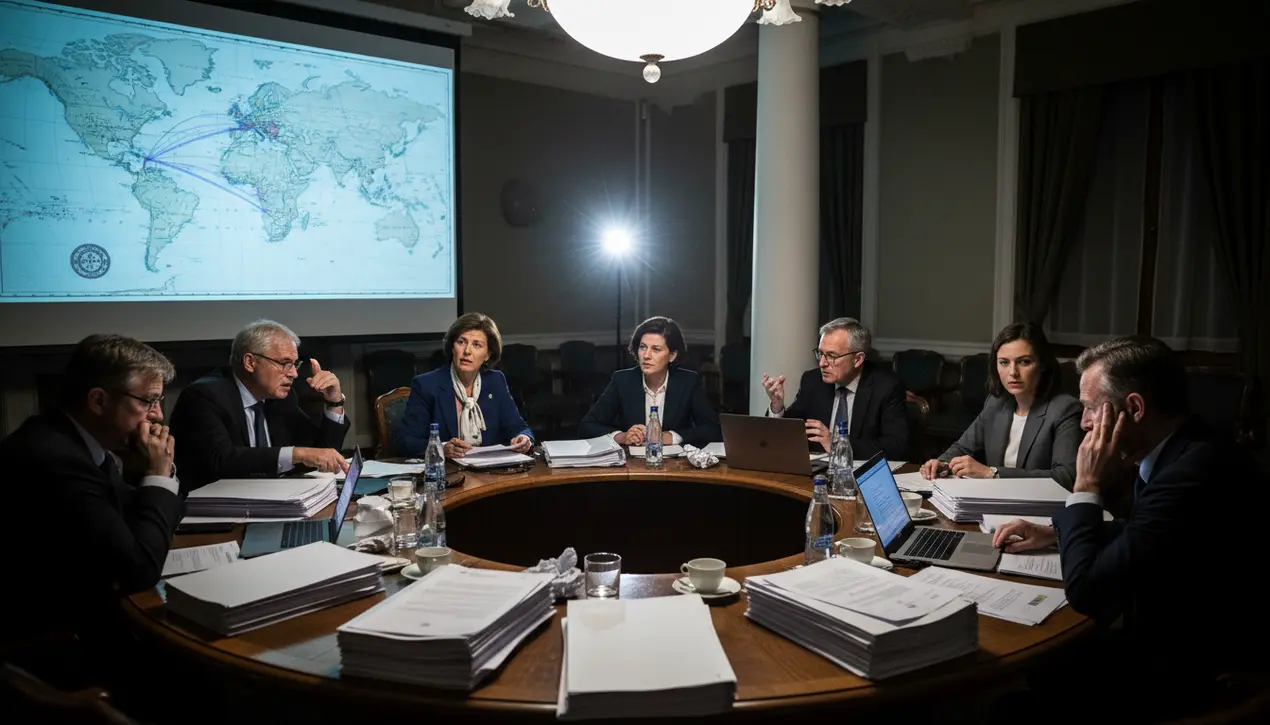
Politicssanctions & tradeEconomic Sanctions
EU Scrambles for Economic Security Doctrine Amid US-China Rivalry
RO
Robert Hayes
13 hours ago7 min read
The European Union finds itself in a geopolitical quandary reminiscent of historical moments when great powers realigned, as it scrambles to formulate a coherent economic security doctrine against the backdrop of intensifying US-China rivalry. More than two years after initially launching its economic security strategy—a period during which the world has become increasingly swept up in overt economic warfare—the bloc remains fundamentally divided on what the term 'economic security' even entails, a paralysis that echoes the institutional indecision of pre-integration Europe.Despite this foundational ambiguity, driven to action by the dual pressures of aggressive US tariffs on steel and aluminium and sophisticated Chinese export controls on critical minerals, Brussels is now preparing to unveil a new 'economic security doctrine' in early December. This document is intended to function as a strategic dashboard for bureaucrats, cataloguing the full arsenal of economic weapons at the EU's disposal and the specific policy levers to pull, from enhanced investment screening mechanisms and outbound investment controls to stricter dual-use export regulations and supply chain resiliency initiatives.However, this rushed effort comes even as tangible progress on its landmark 2023 strategy appears stalled, mired in the complex interplay of member state interests where nations like Germany, with its deep automotive and manufacturing ties to China, clash with the more hawkish, sovereignty-focused positions of France and the Eastern European states wary of Russian and Chinese influence. The core challenge is one of strategic autonomy versus transatlantic alignment; the EU is caught between its largest security ally, the United States, which is pursuing a blatantly protectionist industrial policy through the Inflation Reduction Act, and its largest trade partner, China, which represents both a vital market and a systemic rival.This is not unlike the diplomatic tightropes walked by European states during the Cold War, forced to navigate between American and Soviet spheres, though today's battlefield is supply chains, semiconductors, and clean tech rather than tanks and missiles. Experts from the European Council on Foreign Relations warn that without a unified, actionable definition of what constitutes a threat to its economic security, the EU's doctrine risks being a paper tiger—a list of tools with no consensus on when or how to use them, potentially leaving European industries vulnerable to coercion while its competitors act with decisive, state-backed purpose. The December announcement will therefore be a critical test of whether the EU can transition from a regulatory superpower to a geoeconomic actor capable of defending its interests in an era of renewed great power competition, a task that will require a degree of political unity and strategic foresight that has thus far proven elusive.
#economic security
#EU
#US-China rivalry
#trade tariffs
#economic warfare
#featured
Stay Informed. Act Smarter.
Get weekly highlights, major headlines, and expert insights — then put your knowledge to work in our live prediction markets.
Comments
Loading comments...
© 2025 Outpoll Service LTD. All rights reserved.